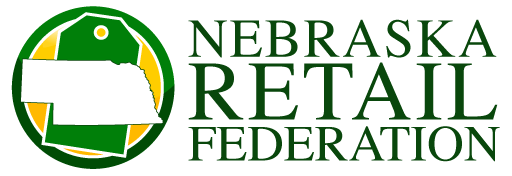Governor Signs Nebraska Marketplace Fairness Legislation
Nebraska’s Marketplace Fairness Bill (LB 200) was signed into law by the Governor Pete Ricketts on May 27, 2015. We thank the Governor as we have worked very hard on this issue both last session and this session. We are elated by the overwhelming support by the Legislature with a final vote of 47-0.
LB 200 sends a direct message to Nebraska’s Federal representatives to pass Marketplace Fairness on the Federal level by assuring them that Nebraska will use new sales tax dollars it receives as a result of Marketplace Fairness passing on the federal level for property tax reduction and not for new spending. The bill also gives the federal government a maximum of 3 years to get it done.
Nebraska’ brick and mortar retailers insist that our Federal representatives take immediate action. We need the Marketplace Fairness Bill passed at the federal level as quickly as possible to level the playing field when it comes to online sellers collecting and remitting sales tax and for these funds to give the State of Nebraska the much needed property tax relief.
We thank all of the Nebraska State Senators who supported LB 200. We especially appreciate the efforts of Senator Al Davis who introduced it and Speaker Galen Hadley who made it a Speaker Priority Bill.
The 2015 session of the Nebraska Legislature has adjourned. As we have in the past, we will work hard to stop anti-business legislation. We will also be working hard to pass legislation that helps make you more competitive and increases your bottom line. Here are three of those issues we would like your feedback on:
- Nebraska merchants collect and remit millions of dollars more in sales tax than they collect on a net basis. This is primarily due to the fee charged by credit card companies on the sales tax portion. We have been fighting to rectify this injustice for some time. At our urging, two bills were introduced in the 2015 session to address the issue. One would prohibit the collection of credit card fees by credit card companies on the sales tax portion. The other would increase the collection allowance merchants receive for collecting and remitting sales tax on all taxable sales. Both bills are still alive and we are cautiously optimistic about the possibility of success on this issue in the 2016 session.
- Nebraska does not have a Sales Tax Holiday and loses business to neighboring states that do. Iowa and Missouri both have sales tax holidays for back to school items. Missouri also has a sales tax holiday for energy efficient appliances and electronics. There is interest among Nebraska retailers to enact sales tax holiday(s) to put Nebraska retailers on equal footing with Iowa and Missouri retailers.
- Out of state online only retailers have an unfair advantage over Nebraska’s brick and mortar retailers because they are not required to collect and remit Nebraska sales tax. The Marketplace Fairness Act addresses this on the federal level and has passed the United States Senate. It is now awaiting action in the House of Representatives. Enactment would remove the present unfair situation by leveling the retail playing field. It would also bring between 50 and 80 million more dollars in sales tax revenue to the State of Nebraska annually. We have been informed that House members are being urged not to move the bill on the premise that any new money states would receive would go to new programs and not to tax reduction. To send a clear message to Nebraska’s Congressional delegation that the dollars would be used for tax relief in Nebraska and not new programs, we will be urging the introduction of a bill which would apply any new dollars the state receives to property tax reduction.

